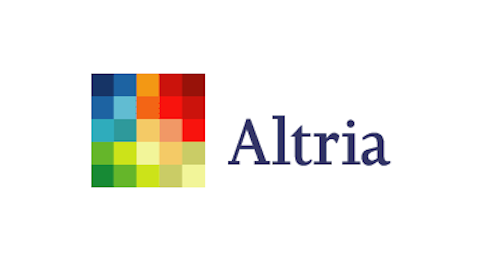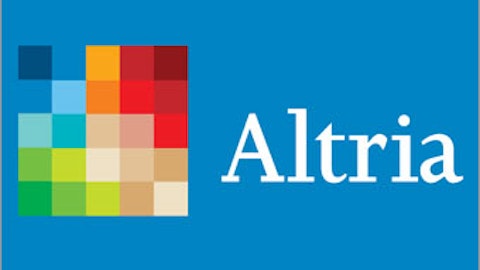It is unusual to see a tobacco company that is struggling to keep up with demand. Indeed, one of the biggest threats facing the tobacco industry right now is falling sales. However, demand for Universal Corp (NYSE:UVV)‘s tobacco is actually greater than what the company has the ability to supply.
Falling yields
Universal Corp (NYSE:UVV) is a tobacco leaf producer that, through its subsidies, grows and sells tobacco to the big tobacco players in the industry. Unfortunately, Universal Corp (NYSE:UVV) reported lower sales and revenues for the first half of this year, but these lower figures were a result of a fall in production. Crop sizes were affected within the U.S. by high levels of rainfall, and harvests from South America and Africa came in below estimates — exacerbating global conditions of undersupply in the tobacco market.

That said, the company notes that crops for 2014 are expected to produce a better yield, and demand for tobacco remains strong — so strong, in fact, that Universal Corp (NYSE:UVV)’s management noted within the second-quarter earnings report that uncommitted inventories remain at extremely low levels.
As I have already mentioned, it is unusual for a tobacco company to be noting such high demand for its products, considering the declining consumption of tobacco worldwide, which reinforces Universal Corp (NYSE:UVV)’s position as one of the best tobacco industry plays on the market.
Branching out
However, one thing that has been holding Universal back is its lack of diversification — in particular, its lack of exposure to the e-cig market, the newest and fastest-growing segment of the tobacco market. However, Universal Corp (NYSE:UVV) is on the warpath, and one of its subsidiaries has recently struck up a partnership with a premier botanical extraction company to produce liquid nicotine for electronic cigarettes.
This partnership should drag Universal into the 21st century, brining it into line with peers such as Lorillard Inc. (NYSE:LO) and Reynolds American, Inc. (NYSE:RAI), both of which already have electronic cigarette products on the market.
The competition
Lorillard Inc. (NYSE:LO)’s electronic offering comes in the form of blu eCigs, which at the end of the second quarter were available in 30,000 retail outlets and held a 40% share of the domestic market. Sales of blu totaled $114 million for the first six months of this year, and Lorillard Inc. (NYSE:LO) pocketed a 31.6% gross margin for the first three months of the year, followed by a 33.3% gross margin for the second quarter. These growing margins, along with lower expenditure after the initial launch of the product, led to a 250% quarter-on-quarter rise in net income for Lorillard Inc. (NYSE:LO) from the sales of blu.
Net income totaled $9 million for the first six months of the year. That said, net income from blu only accounted for 0.7% of Lorillard Inc. (NYSE:LO)’s total net income of $1,092 for the first six months of the year. Still, with tobacco sales declining, this could be a lucrative business segment for the company.
Meanwhile, Reynolds American, Inc. (NYSE:RAI) is also active in the not-tobacco nicotine sector. Reynolds American, Inc. (NYSE:RAI)’ subsidiary, Niconovum USA, has entered its first lead market in the United States with Zonnic, a nicotine replacement therapy gum, while another subsidiary, R.J. Reynolds Vapor, has introduced an electronic cigarette, VUSE, which has limited distribution.
Universal does not have a ax hanging over it
Universal’s non-tobacco product has not yet come to market, as it’s in the early stages of development, but the company seems much more appealing than both Reynolds American, Inc. (NYSE:RAI) and Lorillard Inc. (NYSE:LO) due to the continual threat of menthol cigarette regulation. More than 90% of Lorillard’s and 30% of Reynolds’ sales are menthol-related, so any ban here in the U.S. would rapidly slash revenue to a degree not even non-tobacco products could fill.
Universal is in a better position for falling sales
Universal is used to the irregularities of crops; therefore, the company keeps a relatively clean balance sheet, so there is no obligation to pay large amounts of interest on debt every quarter. In comparison, both Lorillard and Reynolds American, Inc. (NYSE:RAI) have been borrowing to buy back stock, to such an extent that Lorillard’s shareholder equity is now negative $1 billion (liabilities exceed assets), and Reynolds’ balance sheet is propped up with $8 billion of goodwill, without which, or on a tangible asset basis, the company has negative shareholder equity. On the other hand, Universal’s debt-to-equity ratio is 0.4 and the company’s current ratio is greater than 2 (both Reynolds American, Inc. (NYSE:RAI) and Lorillard have current ratios less than 1).
Foolish summary
Universal Corp (NYSE:UVV) is a good play on an industry that is otherwise considered to be declining. The company also has one of the best balance sheets in the tobacco sector, so there is plenty of room for additional investors returns.
On the other hand, the financial positions of Reynolds American, Inc. (NYSE:RAI) and Lorillard are fine at the moment, but declining sales could pile on the pressure in future years. Additionally, the threat of menthol regulation is an ax hanging over the industry.
All in all, Universal just looks to be the better choice.
The article This Tobacco Company Is Struggling to Keep Up With Demand originally appeared on Fool.com and is written by Rupert Hargreaves.
Fool contributor Rupert Hargreaves has no position in any stocks mentioned. The Motley Fool has no position in any of the stocks mentioned.
Copyright © 1995 – 2013 The Motley Fool, LLC. All rights reserved. The Motley Fool has a disclosure policy.




